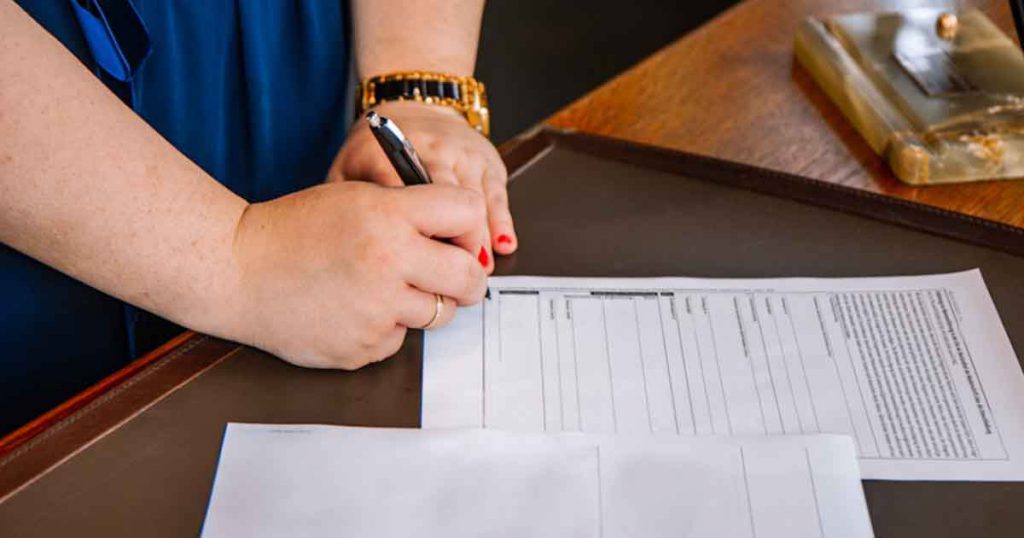
Finding the perfect rental can be both exciting and overwhelming, especially if you’re a first-time renter stepping into the rental market. You might have found a potential apartment that checks all your boxes, but before you sign on the dotted line, it’s essential to ask the right questions to ensure you fully understand your contract.
You might wonder, “What should I ask my future landlord?” Don’t worry, we’ve got you covered. Here are the top 10 types of questions to ask your landlord before signing a lease.
1. Lease Terms
What is the duration of the lease?
The length of your lease is a fundamental aspect of your rental agreement. Leases can range from month-to-month to one year or even longer. Make sure you know the exact duration so you can plan accordingly. Are you comfortable committing to a one-year lease, or would a shorter term suit your plans better?
Is there an option to renew the lease?
Knowing if there’s an option to renew gives you flexibility. Ask about any conditions or changes in rent that might come with renewal. It’s also worth asking how far in advance you need to inform your landlord if you decide to renew the lease. This information can help you avoid unexpected surprises and plan your future moves more effectively.
2. Rental Policies

Are there any restrictions on pets?
If you’re a pet owner or plan to get a pet, this question is crucial. Some properties have strict no-pet policies, while others might allow pets with certain conditions, like breed restrictions or additional pet deposits. Understanding these policies upfront can save you a lot of headaches down the road.
What are the rules regarding subletting?
Life can throw curveballs, and you might find yourself needing to move before your lease is up. Ask your landlord about their subletting policies. Can you sublet the apartment if necessary? Are there any fees associated with subletting? Having this option can provide some peace of mind.
3. Maintenance Responsibilities
Who is responsible for maintenance and repairs?
Clear maintenance responsibilities are key to a smooth renting experience. Find out who handles routine maintenance and urgent repairs. Does the landlord have a handyman or a preferred contractor? Knowing this can help you understand how quickly issues will be resolved.
How quickly are maintenance requests typically addressed?
It’s not just about who handles maintenance but also how efficiently it’s done. Ask current or past tenants, if possible, about their experience with maintenance requests. A landlord who addresses issues promptly can significantly enhance your living experience.
What is the typical response time for maintenance requests?
The response time for maintenance requests can vary widely between different rental properties. Ask your landlord for an estimated time on how quickly maintenance issues are likely to be addressed. If possible, ask current tenants about their experiences with the landlord’s responsiveness. Timely maintenance can significantly improve your living experience.
Are there any costs associated with maintenance requests?
Find out if there are any costs you are responsible for when submitting maintenance requests. While most landlords cover routine maintenance and urgent repairs, there might be charges for specific services or if the damage is due to tenant negligence. Having a clear understanding of any potential costs can help you budget and avoid misunderstandings.
4. Security Deposit

What is the amount of the security deposit?
Security deposits can be a significant upfront cost. And it’s no surprise that you’d want to get the whole deposit back to fund your next move. Find out how much the deposit is and if there are any non-refundable fees. This helps you budget more effectively and ensures there are no surprises when you sign the lease.
How is the security deposit handled?
Ask how your security deposit will be stored and under what conditions it will be returned. What are the typical reasons for deductions? Understanding this can help you take better care of the property and ensure you get your full deposit back when you move out.
5. Utilities
Which utilities are included in the rent?
Utilities can add a substantial amount to your monthly expenses. Clarify which utilities (water, gas, electricity, internet, etc.) are included in the rent and which ones you’ll need to pay separately. This information can help you better estimate your total monthly cost.
Are there any utility cost caps or limitations?
Some landlords include utilities up to a certain limit. It’s essential to know if there are any caps on utility usage to avoid unexpected charges. This can affect your budgeting and how you use energy within the rental property.
6. Viewing the Property
Should you do a walkthrough before signing a lease?
Absolutely! A property walkthrough is a must before signing the lease. This gives you the chance to spot any existing damages or issues that need to be addressed. Document everything with photos and notes, and make sure these are acknowledged by the landlord. This can prevent disputes over the security deposit when you move out.
7. Drop-in Visits & Showings
Understanding the policy for landlord drop-in visits is crucial for maintaining your privacy and peace of mind while renting. Ask your landlord if they have a policy in place for drop-in visits or if they will give you advance notice before entering the property. Having clear boundaries and expectations can help maintain a positive relationship with your landlord during your tenancy.
8. Rent Payments

Are there any additional fees or charges?
Apart from the rent, there may be additional fees such as parking, amenity usage, or maintenance fees. Make sure to ask about any extra charges that might not be immediately apparent. Knowing these ahead of time will help you budget more accurately and avoid unexpected costs.
What is the policy on rent increases?
Inquire about possible rent increases, especially if you plan to stay beyond the initial lease term. Does the landlord have a set percentage for annual rent increases, or will they base it on market conditions? Understanding this will help you assess the long-term affordability of the rental property.
How is rent payment handled?
Find out how and when you can pay your rent. Some landlords may prefer checks, while others might offer electronic payment options. Additionally, ask if there is a grace period for late payments and what fees are associated with late or missed payments. Having clarity on this can ensure you’re prepared and avoid any penalties.
9. Renter’s Insurance
Renter’s insurance is often an overlooked but crucial component of renting a property. This type of insurance provides protection for your personal belongings in case of theft, fire, or other covered events. Additionally, it can offer liability coverage if someone is injured while visiting your rental. Some landlords might even require tenants to have renter’s insurance as part of the lease agreement. It’s wise to ask your landlord about any specific requirements and also to shop around for the best coverage options to safeguard your possessions and ensure peace of mind.
Is renters’ insurance required?
More landlords are now requiring tenants to have renters’ insurance. This protects your personal belongings in case of theft, fire, or other unexpected events. Ask if this is a requirement and, if so, the minimum coverage required. This is an additional cost that you’ll need to factor into your overall expenses.
Are there any move-in or move-out fees?
Some rentals charge additional fees when you move in or out, such as elevator reservation fees, moving day permissions, or cleaning fees. Clarifying these before you sign the lease allows you to anticipate and prepare for these potential costs.
10. Moving Out and Getting Your Security Deposit Back
How to ensure you get your security deposit back?
To maximize your chances of getting your full security deposit back, it’s important to leave the rental property in the same condition as when you moved in. Conduct a thorough cleaning, repair any minor damages, and return any keys or access devices provided by the landlord. Document the condition of the property with photos and notes and consider scheduling a walkthrough with your landlord to address any potential issues before your official move-out date. This proactive approach can help mitigate any disputes and ensure a smooth transition.
Ease your Move with Storage at CubeSmart
Choosing CubeSmart for storage is convenient and keeps your items organized between moves. Whether you’re moving across country or across town, we have storage unit options to fit almost any sized home. From 5’x5’ units for your bike or sporting gear to 10’ x 20’ units for a larger home, we have a unit for you. Check out our climate-controlled storage units for long- or short-term storage between moves.









